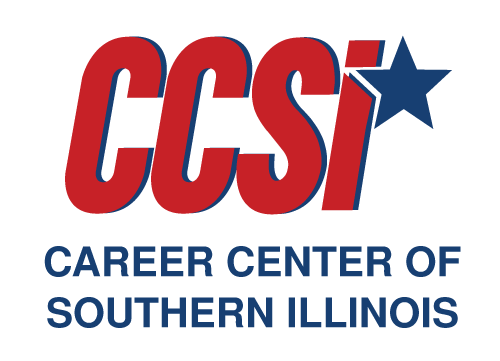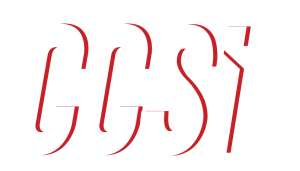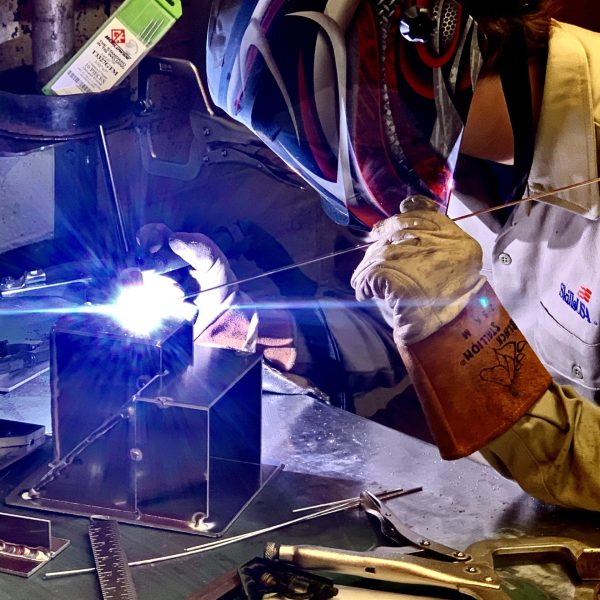CCSI is The Smart Choice for Career-Minded Students
Looking to jumpstart your career in the trades? Seeking more specialized, hands-on training that a traditional educational setting lacks? The Career Center of Southern Illinois could be the smart choice for you.
At CCSI, we recognize that many students, by high school, already have a specific career in mind. Whether it be in the automotive industry, childcare or health occupations — these career-minded students are looking for the practical tools and community connections that will set them on the pathway to success.
The Career Center of Southern Illinois draws students from seven participating school districts, providing hands-on, real-life career training for juniors and seniors who want to enter the workforce sooner and/or learn a specific trade or skill.
We welcome you to learn more about how we are preparing students for the working world!
Our Programs
Auto Collision Repair
Students will gain all the skills required to become an auto body technician. This includes the use of hand tools, painting, basic beginning straightening procedures, removing and replacing trim, welding, safe work practices and more. Advanced students will also learn frame straightening, overall paint jobs, welding, sectioning of frames and structural components.
Automotive Service
Using the latest in automotive training equipment and competency based curriculum, students will become knowledgeable of fundamental principles and methods related to auto service technology, and will develop technical skills for the maintenance, service and repair of a variety of different types of vehicles.
Safety principles and practices will be covered, along with instruction related to the following areas: Electrical Systems, Brakes, Steering and Suspension, Heating and Air-Conditioning, Engine Repair, Engine Performance, Automatic Transmission/Transaxle, Manual Drive Train & Axles.
The curriculum prepares students to take the Automotive Service Excellence (ASE) exam for certification purposes. Students also have the opportunity each year to compete in the Skills USA state competition. Completion of the program allows for up to three industry-recognized certificates.
Child Care
Students will study principles of child care and learn how to plan developmentally-appropriate activities as they train to work as aides in preschool and day care centers. An overview of other careers in child care will also be provided. Practical experience is provided through the on-site preschool, which meets three days a week.
With instructor permission, highly-motivated juniors may return as Child Care II students, gaining further instruction in child care principles and additional responsibilities such as planning and leading activities in the on-site lab. Students seeking child care careers will need to continue their education at a community college or a four-year university.
Health Occupations
Through observation, participation, visitation, and exploration, students who have an interest in entering the health occupations field will be exposed to career options, basic medical knowledge, and a concentration in the area of health-care aide. The course will include combined classroom experiences and supervised clinical learning experiences in designated long-term care facilities and other health agencies. As a part of the program, students will work in a long-term care facility under the supervision of the teacher and nursing personnel.
Course Fees: $75.00 per year. Additional fees pursuant to Illinois Dept. of Public Health requirements include those for uniforms ($20-$30), a state competency exam ($65), TB skin tests ($65) and a Gait Belt ($10-$20).
*Course is dual credit with SWIC. Six hours of available credit can be earned.
Law Enforcement
This is an introductory course preparing students to enter the field of law enforcement or any related area. Students will be introduced to patrolling techniques, field operating observations and perceptions, communicating with the public, radio communications, reporting, and records.
Instruction will also include questioning procedures, legal rights, routine police procedures, crime investigations, pursuit and arrest. Tours, job shadowing, police demonstrations and observation of search and custody procedures are also part of the course.
*Course is dual credit with SWIC.
Welding
Students planning a career in industrial or production welding, farm machinery repairs, or private business will be exposed to expert training in a variety of welding processes, equipment, materials, techniques, welding positions and trade terms. The student will gain extensive hands-on experience and knowledge and learn employer-employee relationships in preparation for the job market. Students will also participate in several welding competitions throughout the midwest.
The program teaches students skills in the following areas: shielded metal arc (stick) of mild steel and stainless steel; gas metal arc (mig) of mild steel and aluminum; gas tungsten arc (tig) of mild steel, stainless steel and aluminum; flux core arc (dual and self shield) of mild steel; plasma cutting, and oxy-acetylene hand and automatic cutting. The air-carbon arc gouger is also used regularly.
First-year students concentrate on flat, horizontal, 45 degree, vertical and overhead fillets on plate and pipe. Second-year students work with bevel plates in the flat, horizontal, 45 degree vertical and overhead positions with all the processes. Stainless steel and aluminum welding skills are also gained with the mig and tig processes.
*Course is dual credit with SWIC.
Program Information
*Students attend two hour classes designed to emphasize proper work habits, employability, and career opportunities. All programs generate three high school credits per year.
Eligibility: Our programs are open to juniors and seniors referred by our member schools in Chester, Columbia, Dupo, Freeburg, Marissa, New Athens, Red Bud, Sparta, Valmeyer and Waterloo.
Fees: $75- $125 per year depending upon the vocational class.
For more information, see your high school counselor or call CCSI at 618-473-2222.







